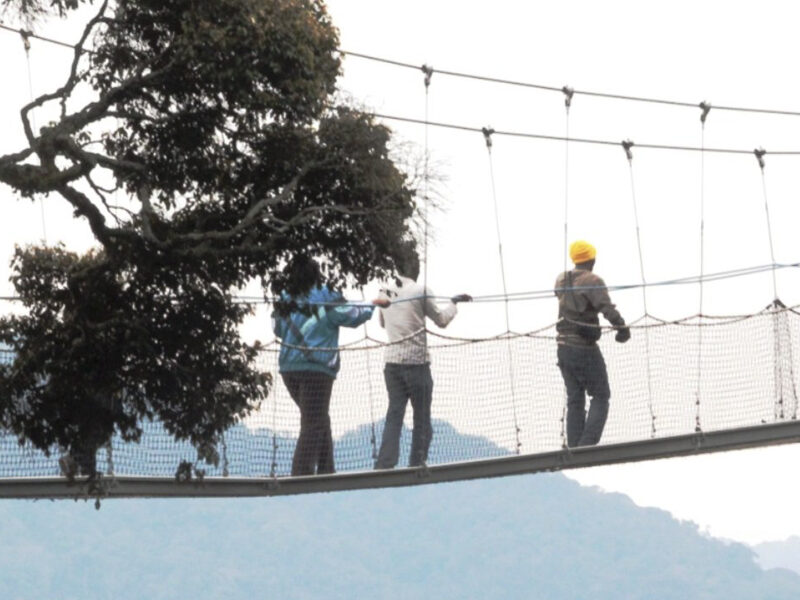3 Days Kibira National Park Tour
500$
per personKibira National Park, Bujumbura City Tour, See the Explorers Memorial, and Lake Tanganyika
A mouth-watering tropical scenery is found within the region of the Central plateau and the thousands of surrounding hills, as well as the depressions in the Eastern and North-Eastern part of Burundi. Burundi has many places of interest: from the Capital Bujumbura, to the beautiful landscapes of Lake Tanganika, Ruvubu and Kibira Forest and the Source of the Nile at Rutovu. These places boast of antelopes, hares, buffalos, cynocephalus and tropical and wild crocodile.
-
DepartureTour startTour starts from: “Entebbe” at 10:00 a.m. every Saturdays from: Kampala, Entebbe, Uganda
-
Departure TimePlease arrive by 9:15 AM for a prompt departure at 9:30 AM.
-
Return TimeApproximately 8:30 PM.
-
Dress CodeCasual. Comfortable athletic clothing, hiking shoes, hat, light jacket.
-
Include
Day 1: Arrive Bujumbura
Day 2: Kibira National Park Burundi
Day 3: Fly Out
Tour Location
Bujumbura City tour, See the Explorers Memorial, Lake Tanganyika, Kibira Park, track gorillas in Rwanda, Uganda and/or Congo, Visit Lake Bunyonyi in Uganda.
-
Uganda's history is marked by pre-colonial kingdoms, British colonial rule, and post-independence challenges. The country's borders were drawn arbitrarily in the late 19th century, encompassing diverse societies. In 1894, Uganda became a British protectorate, and it gained independence on October 9, 1962. Following independence, Uganda faced a period of political instability, including civil wars and military coups.Pre-Colonial Period:
- Uganda's early history is characterized by the movement of various groups of cultivators and herders, leading to diverse languages and cultures.
- The region was home to a variety of centralized kingdoms, including Buganda, Bunyoro, and others, as well as more decentralized Nilotic and Sudanic peoples.
- Evidence of human activity in Uganda dates back to at least 50,000 years ago, with Acheulean tools found along the Kagera River valley.
British Colonial Period (1894-1962):- In 1894, Uganda was declared a British protectorate.
- The British administration extended control beyond Buganda by signing treaties with other kingdoms like Toro, Ankole, and Bunyoro.
- Uganda was never fully colonized; instead, it developed a system of internal self-government through a Legislative and Executive Council.
- The British influence was strong in the late 19th century, particularly with the arrival of missionaries from the British Missionary Society and the French Roman Catholic White Fathers.
Independence and Post-Colonial Period (1962-Present):- Uganda gained independence on October 9, 1962, with Milton Obote as the first Prime Minister.
- The newly independent nation faced challenges, including civil wars and political instability, leading to a period of military coups and dictatorships.
- In 1995, a new constitution was adopted, establishing a non-party all-inclusive Movement System of government.
- In 2005, a referendum was held, resulting in a return to multi-party politics.
- Uganda has since made significant strides in restoring peace and rebuilding infrastructure, while also engaging in peacekeeping operations through the Uganda People's Defence Force.
Key Events and Figures:- Milton Obote: The first Prime Minister of Uganda, who played a key role in the independence movement and later served as President.
- Idi Amin: A military leader who seized power in 1971 and ruled Uganda for eight years, a period marked by human rights abuses and political instability.
- Yoweri Museveni: The current President of Uganda, who has been in power since 1986.
- Uganda's early history is characterized by the movement of various groups of cultivators and herders, leading to diverse languages and cultures.
Write a Review
Club du Lac Tanganyika Hotel





